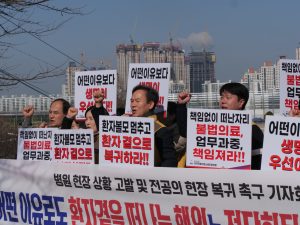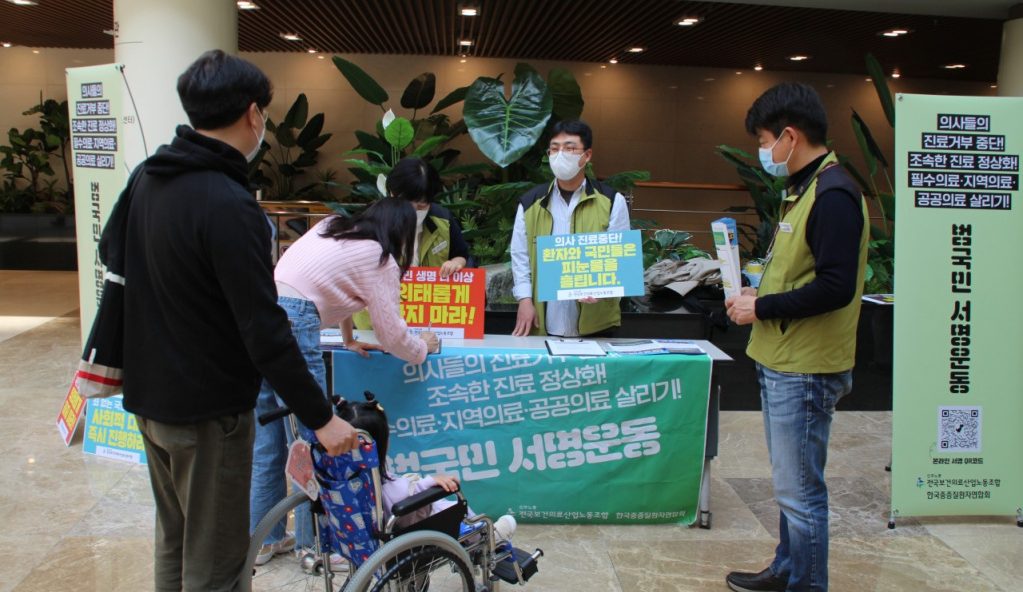Korean healthcare workers call for immediate end to doctors’ strike
28.03.24
UNI Global Union affiliates the Korean Health and Medical Workers Union (KHMU) and the Federation of Korean Medical Industry Trade Unions (FKMTU) are calling for an immediate normalization of medical services in South Korea and the end of the strike by trainee doctors.
In February, around 12,000 resident and intern hospital doctors walked out in protest over government plans to train an extra 2,000 medical students every year, saying that the universities are unable to cope and it will harm the health service in the long run. This week hundreds of senior doctors quit their jobs in sympathy for the striking doctors, which KHMU strongly opposes.
KHMU has long argued that more doctors are badly needed across the Korean health care system, particularly in rural communities and in light of the country’s ageing population. The quota of medical students has been frozen for the last 20 years.
Furthermore, the strike is creating an impossible burden on nurses in the healthcare system, who already bear the brunt of doctor shortages. In an interview with Korean news channel, YTN, KHMU President, sister Choi Hee-Sun said nurses are severely suffering from overwork and are scared at being made to illegally carry out medical procedures that should be performed by resident doctors at the hospitals.
In a statement released on 26 March KHMU blames the government for the current crisis, which has entered its fifth week, and is demanding that the exploitation of nurses stops. It wants the government to create an official body to begin dialogue, resolve the dispute and make a comprehensive plan for the future of Korean healthcare.
UNI Asia & Pacific Regional Secretary, Rajendra Acharya, said:
“Hospital workers and patients are paying the price for a strike that should never have started. We urge the doctors to return to work and call on the government to enter into constructive dialogue as soon as possible and build a convincing pathway towards a strong health system in Korea.”



